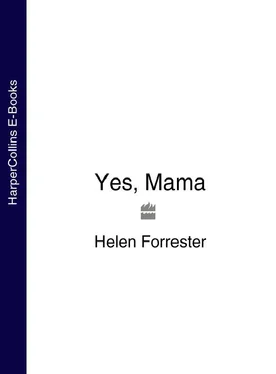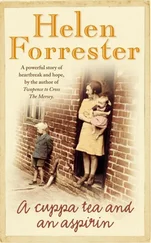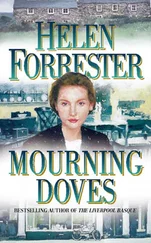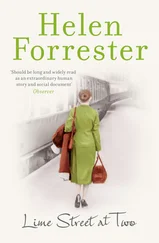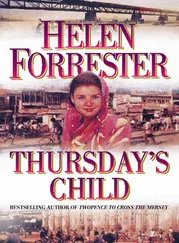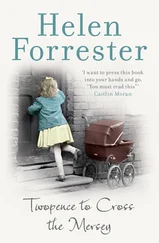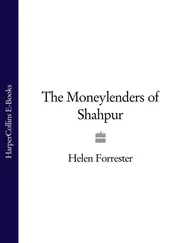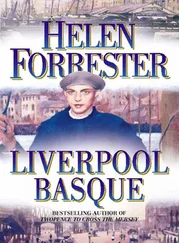HELEN FORRESTER
Yes, Mama
Harper
An imprint of HarperCollins Publishers Ltd. 1 London Bridge Street London SE1 9GF
www.harpercollins.co.uk
First published in Great Britain by William Collins Sons & Co Ltd 1988
First published in Fontana Paperbacks 1988
Copyright © Helen Forrester 1988
Helen Forrester asserts the moral right to be identified as the author of this work
A catalogue record for this book is available from the British Library
All rights reserved under International and Pan-American Copyright Conventions. By payment of the required fees, you have been granted the nonexclusive, nontransferable right to access and read the text of this ebook on-screen. No part of this text may be reproduced, transmitted, downloaded, decompiled, reverse-engineered, or stored in or introduced into any information storage and retrieval system, in any form or by any means, whether electronic or mechanical, now known or hereinafter invented, without the express written permission of HarperCollins ebooks
HarperCollins Publishers has made every reasonable effort to ensure that any picture content and written content in this ebook has been included or removed in accordance with the contractual and technological constraints in operation at the time of publication
Source ISBN: 9780006174707
Ebook Edition © FEBRUARY 2013 ISBN: 9780007508235
Version 2016-12-30
ToNora Walton (Sylvia Poole)who was my friend when I mostneeded one .
‘The prejudices remain within society,within families and, above all, within the law.’
Virginia Ironside and Jane Horwood,
How can I explain to my daughter that
she isn’t a little bastard?
WOMAN magazine, November, 1986.
Cover
Title Page
Copyright
Dedication
Epigraph
Chapter One
Chapter Two
Chapter Three
Chapter Four
Chapter Five
Chapter Six
Chapter Seven
Chapter Eight
Chapter Nine
Chapter Ten
Chapter Eleven
Chapter Twelve
Chapter Thirteen
Chapter Fourteen
Chapter Fifteen
Chapter Sixteen
Chapter Seventeen
Chapter Eighteen
Chapter Nineteen
Chapter Twenty
Chapter Twenty-One
Chapter Twenty-Two
Chapter Twenty-Three
Chapter Twenty-Four
Chapter Twenty-Five
Chapter Twenty-Six
Chapter Twenty-Seven
Chapter Twenty-Eight
Chapter Twenty-Nine
Keep Reading
About the Author
Also by the Author
About the Publisher
Much to her mother’s annoyance, Alicia Beatrix Mary decided to be born on May 12th, 1886, during a visit to Liverpool of the dear Queen to open the International Exhibition of Navigation, Travelling, Commerce and Manufactures. On the day of Alicia’s slightly premature birth, the Queen was to drive down the Boulevard from Princes Park, on her way to St George’s Hall. As a result of Alicia’s arrival, her mother, Elizabeth Woodman, missed the chance of seeing her Sovereign.
Mrs Dorothea Evans, the wife of a Liverpool shipping magnate, had graciously invited Elizabeth to view the procession from her bedroom window, which faced the Boulevard. ‘If you wore a veil and a large shawl and came in a carriage, no one would realize your – er – condition. You could watch in absolute privacy from behind the lace curtains.’
Elizabeth had been thrilled by an invitation from such an eminent lady, who was herself to be presented to the Queen. She had looked forward to extending her acquaintance with Mrs Evans. She guessed that it would please Humphrey exceedingly if she were to make a friend of the wife of such an influential man – and Elizabeth knew that in the months to come, she would have to do a lot to mollify an outraged Humphrey Woodman, her husband of twenty-two years.
Between the painful contractions, as her forty-year-old body strove to deliver the child, she was consumed by anxiety, an anxiety which had commenced when first she knew she was pregnant.
Had Humphrey realized that the child was not his?
It was always so difficult to be sure of anything with her husband, she worried fretfully. He was so wrapped up in his multifarious business activities and the woman in the town whom he kept, that he rarely talked to his wife, never mind slept with her. But, of late, his usual bouts of temper had been so violent that she felt he must suspect her. And yet he had never commented on her condition.
Could it be, she wondered, that her huge skirts and swathing shawls had been a sufficient disguise, and that he had never realized her condition? She had found it difficult to believe, but she had still clung to the idea, hoping that she might miscarry. Now she prayed that, faced with a living child, he might use his common sense and accept it.
Peevishly, between gasps of pain, she commanded that the heavy, green velvet curtains be drawn over the ones of Nottingham lace. ‘The sunlight’s hurting my eyes,’ she complained to the midwife. Mrs Macdonald, a stout, middle-aged woman in an impeccably white apron and long, black skirt, sighed at her difficult patient and hauled the heavy draperies over the offending light. The huge, brass curtain rings rattled in protest.
‘I’ll need some more candles, Ma’am.’
‘Well, ring for them,’ panted Elizabeth.
‘Yes, Ma’am.’ Mrs Macdonald went to the side of the fireplace and tugged at the green velvet bell-rope.
Though the bell rang in the basement kitchen, the distant tinkle was answered immediately by Fanny, a skinny twelve-year-old skivvy, who had been posted outside the door by Rosie, the housemaid, with orders to bring any messages from her mistress to her while she snatched a hasty lunch in the basement kitchen.
The child opened the bedroom door an inch, and hissed, ‘Yes, Missus?’
‘Fanny, tell Rosie to bring us some more candles immediately and make up the fire,’ ordered Mrs Macdonald. ‘And bring another kettle of water – and a trivet to rest it on.’
‘I’ll do fire afore I go downstairs.’ A hand with dirt-engrimed nails gestured through the narrow opening of the door, towards the brimming coal scuttle by the fireplace.
Mrs Macdonald was shocked. ‘Good gracious me, no! A young one like you can’t come in here. Send Rosie up to do it.’
‘Ah, go on with yez. I’elped me Auntie last time.’
‘Don’t be so forward, young woman,’ snapped the midwife. ‘Get down them stairs and tell Rosie.’
‘She int goin’ to like doin’ my job. Fires is my job.’ Fanny shrugged, her thin lips curved in a grimace as she turned to do the errand. She was stopped by the sound of a querulous voice from the bed. ‘Mrs Macdonald, ask Fanny if Miss Florence has arrived yet – or Miss Webb. Or Mr Woodman?’ The voice sounded flustered, as Elizabeth named her husband.
‘Nobody coom to the front door, Ma’am, not since doctor coom an hour ago,’ piped Fanny.
‘Where is everybody?’ muttered Elizabeth exasperatedly. She moaned, as another bout of pain surged up her back and round her waist.
Mrs Macdonald answered her soothingly. ‘It’s early hours, yet, Ma’am. There’s no hurry. Just rest yourself between the pains.’
Elizabeth grunted, and clutched the bedclothes. The thud of Fanny’s big feet on the long staircase seemed to shake her and added to her fretfulness. Would the girl never learn to walk lightly?
Mrs Macdonald picked up a clean sheet and leisurely began to wind it into a rope. She looped this over the mahogany headrail and laid the twisted ends beside Elizabeth’s pillow, so that her patient could pull on it when the need to bear down became intense. On the bedside table by the candlestick lay a new, wooden rolling-pin; Mrs Macdonald knew from experience that mothers giving birth needed something to clutch when their pains really began.
Читать дальше
